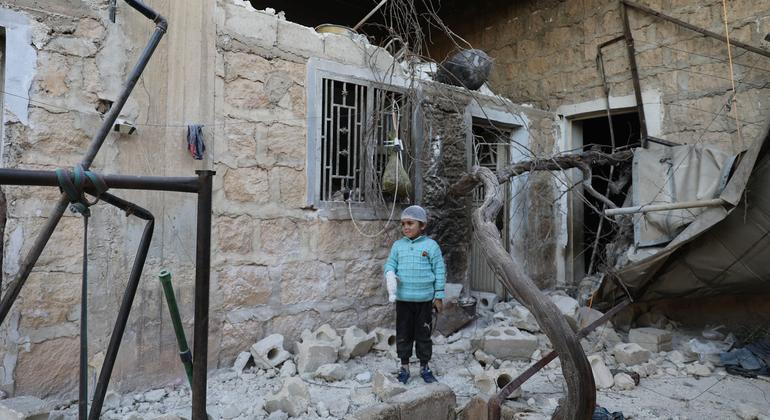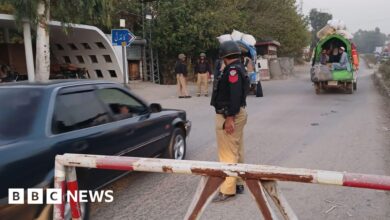Security Council: Syria’s sustainable future depends on ending the war

Displacement rates remain staggeringly high, with more than six million Syrians living as refugees or asylum seekers outside the country’s borders and more than seven million internally displaced.
Across the country, nearly 17 million people – More than 70 percent of the population – currently in need of humanitarian assistance and protectionWomen and children are particularly affected.
Adding to the misery, Syria is still struggling with the aftermath of catastrophic earthquake in february 2023that has caused serious human and material damage.
Record the required level
Joyce Msuya, the UN’s acting emergency relief coordinator, told ambassadors there was an immediate need to ramp up resources as the scale of humanitarian suffering reached unprecedented levels. [► Video]

Joyce Msuya, Acting Emergency Relief Coordinator, briefs Security Council members on the situation in Syria.
She called for increased investment to support early recovery projects and help rebuild livelihoods, reduce aid dependence and address the displacement crisis.
“The key to a lasting solution is to end the conflict decisively.”, she stressed, highlighting the need to address regional insecurity amid the ongoing war in Gaza.
The aftermath of Gaza
Geir Pedersen, the United Nations Special Envoy for Syria, noted the escalating tensions across the Middle East, citing recent violence in Syria’s Israeli-occupied Golan Heights, Beirut, Tehran and airstrikes between Hezbollah and Israel across the Lebanese border. [► Video]
He pointed out that Syria was not spared from this escalation, referring to Israeli airstrikes in Homs, Hama and Deraa that resulted in civilian casualties, including children. US military positions in northeastern Syria were also targeted in attacks that the US attributed to Iran-backed groups.
“We must redouble our efforts to achieve de-escalation in the region in the interests of lasting peace and stability for all – including an urgent ceasefire in Gaza, restoration of peace in Lebanon and on the Green Line, as well as broader de-escalation in the region,” Mr. Pedersen stressed.
Resolution is key
“Similar de-escalation is needed in the Syrian conflict itself.”, he continued, noting concerns about the risk of an outbreak of fighting in the country.
For his part, he remains focused on promoting a UN-led internal Syrian political process, in compliance with Security Council Resolution 2254he said

Geir Pedersen (on screen), United Nations Special Envoy for Syria, briefs the Security Council on the situation in the country.
Including working with various Syrian groups, such as the Syrian Negotiations Commission, the Syrian Government, women, youth and civil society.
“My message on immediate priorities remains consistent,” Mr. Pedersen added, highlighting the urgent need for de-escalation in the region and in Syria, confidence-building measures and helping prepare the ground for a new and comprehensive approach to resolving the conflict.
Difficult challenge
Mr. Pedersen acknowledged that resolving the conflict would be complex and challenging, while stressing that it was important not to view it as insurmountable.
“It would be a mistake to conclude that this is not possible, that conflict can only be managed but not resolved.“
He stressed the need for unified political will within Syria and greater international cooperation to resolve the crisis.
“Of course I recognize that the geopolitical alignment in Syria remains challenging,” he said, “but there is still a way forward. I hope to count on your collective support for that approach going forward.”




